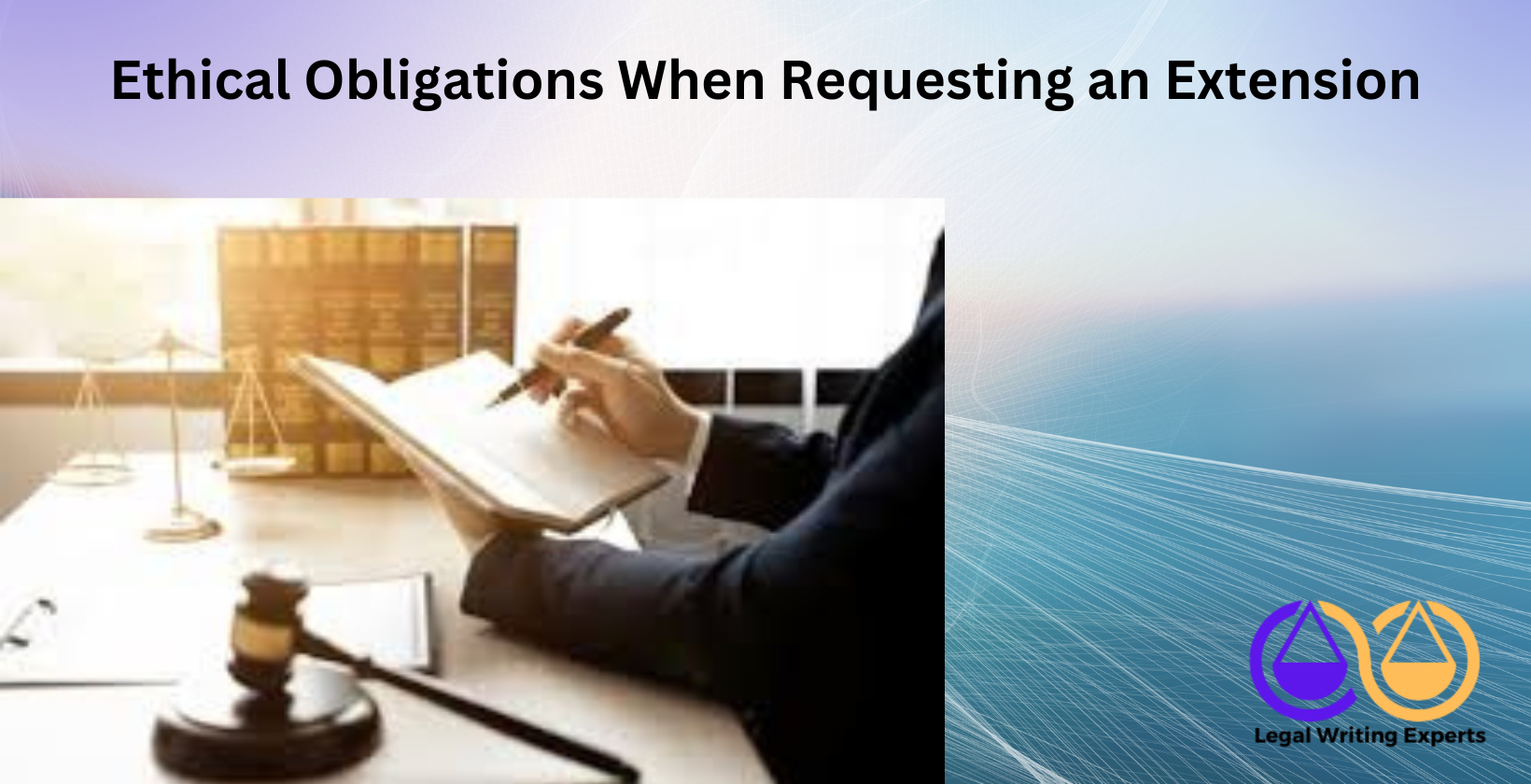Ethical Obligations When Requesting an Extension
Written by
Jessica E
April 28, 2025 · 8 min read

Settling an estate involves navigating legal processes, drafting critical documents, and addressing ethical considerations, particularly when requesting extensions. This article explores the legal process of estate settlement, known as probate, and provides guidance on creating a will, hiring legal writers for document drafting, and understanding the ethical obligations tied to requesting extensions in this context. Each section addresses key questions to ensure clarity, factual accuracy, and alignment with best practices for legal document drafting services.
What Is the Legal Process of Settling an Estate Called?
The legal process of settling an estate is called probate. Probate involves validating a deceased person’s will, identifying assets, paying debts, and distributing property to beneficiaries. Courts oversee this process to ensure compliance with state laws. According to research from the American Bar Association, published in 2023, probate processes vary by state, with 60% of estates requiring formal court supervision due to complex asset distributions. Executors or administrators manage these tasks, often relying on legal drafting services to prepare lawyer papers. Probate ensures transparency, protecting beneficiaries and creditors.
How to Write a Will for Estate Settlement?
A will for estate settlement is written by clearly outlining asset distribution, appointing an executor, and ensuring legal compliance. Start by listing all assets, such as property, bank accounts, and personal items like jewelry or vehicles. Specify beneficiaries for each asset to avoid disputes. Name an executor to manage the probate process; this person should be trustworthy and organized. Use clear language to minimize ambiguity, as vague terms lead to 45% of will disputes, per a 2022 study from Stanford Law School.
Include guardianship provisions for minors, if applicable, to protect dependents. Sign the will in the presence of two witnesses, as required by most state laws, and notarize it for added validity. Legal document drafting services can ensure compliance with state-specific requirements. For example, online legal document platforms streamline formatting, while legal writers review drafts for accuracy. Store the will in a secure location, such as a safe deposit box, and inform the executor of its whereabouts. Regular updates every 3-5 years maintain relevance as assets or relationships change.
Where to Hire a Legal Writer to Draft Estate Settlement Documents?
Legal writing experts are hired to draft estate settlement documents. These professionals, skilled in creating legal documents like wills and trusts, ensure precision and compliance with state laws. Freelance legal research services and legal document review online platforms connect clients with experienced writers. Legal drafting services specialize in lawyer legal documents, offering tailored solutions for probate needs.
How to File for Probate in Estate Settlement
Filing for probate and settling an estate involves a structured legal process to manage and distribute a deceased person’s assets. This article outlines the steps to file for probate, details the comprehensive process of estate settlement, and examines the associated costs. Each section addresses key questions to provide clear, actionable guidance for executors or administrators navigating this complex process. The information adheres to best practices for clarity, factual accuracy, and user-focused content, ensuring reliability for those seeking to understand estate settlement.
What Are the Steps Involved in Settling an Estate?
The steps involved in settling an estate require careful organization and adherence to legal protocols to ensure the deceased’s assets are distributed correctly. The process begins with locating the will, if one exists, and filing it with the probate court, even if formal probate is not required. Executors or administrators must gather a certified death certificate to notify financial institutions and government agencies, such as the Social Security Administration, to stop benefit payments. Next, an inventory of the estate’s assets, including bank accounts, real estate, and personal property, must be compiled and appraised to determine their value. Debts, taxes, and estate expenses, such as funeral costs, are paid from the estate’s funds, with priority given to creditors’ claims. After settling obligations, the remaining assets are distributed to beneficiaries as outlined in the will or, in the absence of a will, according to state intestacy laws. Finally, the executor files a final report with the probate court to close the estate, ensuring all actions are documented and approved. According to research from the University of Minnesota Extension, published in 2020, this structured approach ensures compliance with legal standards and minimizes disputes among beneficiaries.
How Much Does It Cost to Settle an Estate?
The cost to settle an estate varies depending on the estate’s size, complexity, and state-specific regulations, typically ranging from 4% to 7% of the estate’s total value. Court filing fees, which can range from $150 for smaller estates to $500 for estates valued at $1 million, are a primary expense, as noted in Pennsylvania probate guidelines. Executor fees, often set by state law, may be a fixed percentage, such as 5% of the estate’s value in Oregon, or based on reasonable compensation for time spent. Legal document drafting services and attorney fees, charged at hourly rates of $200 to $500 or flat fees for simpler estates, add to costs, particularly for complex cases requiring legal research services. Appraisal costs for assets like real estate or art, surety bond premiums, and certified copy fees for documents, ranging from $5 to $20 per copy, further contribute. Contested wills can escalate expenses, with litigation costs reaching thousands, as reported by the Superior Court of California. Hiring a legal writer or freelance legal researcher can streamline paperwork, potentially reducing costs by ensuring accuracy. For example, estates under $75,000 in Minnesota may use simplified procedures, lowering expenses to under $1,000 in some cases.
What Percentage Does a Lawyer Get for Settling an Estate in Ohio?
The percentage a lawyer gets for settling an estate in Ohio varies by county and estate complexity but is often based on a guideline of 4% of the first $100,000 of probate assets, 3% of the next $300,000, and 2% of assets above $400,000. These fees, considered reasonable under Ohio law, are not mandatory and require probate court approval. For example, an estate valued at $500,000 might incur attorney fees of approximately $13,000. According to a 2023 survey by Martindale-Nolo Research, 34% of estates paid less than $2,500 for legal help, while larger estates paid upwards of $10,000 due to complexity. Hourly rates, ranging from $250 to $400, or flat fees are also common, depending on the attorney’s experience and case demands. Fees are paid from estate funds before asset distribution.
How Much Does an Executor of an Estate Get Paid in Ohio?
An executor of an estate in Ohio is paid based on a statutory formula: 4% of the first $100,000 of probate assets, 3% of the next $300,000, and 2% of assets above $400,000, plus 1% on non-probate assets distributed to beneficiaries. For an estate valued at $500,000, the executor’s fee would be approximately $13,000. Executors can request additional compensation for extraordinary services, subject to court approval. According to Ohio Revised Code Section 2113.35, fees are taxable income, leading 40% of family executors to waive them, per a 2022 Ohio State University study. Courts may reduce fees if duties are not fulfilled.
What Are the Common Challenges in Settling an Estate?
Common challenges in settling an estate include disputes among beneficiaries, complex asset valuation, and creditor claims. Beneficiary disputes, often over asset distribution, delay 30% of probate cases, per a 2023 American Bar Association report. Clear wills reduce conflicts, but vague terms increase litigation risks. Complex assets, like businesses or art collections, require professional appraisals, adding time and cost. For example, jewelry valuation can vary by 20%, per a 2024 University of Cincinnati study. Creditor claims, valid for six months in Ohio, must be addressed promptly to avoid legal complications. Legal document review services and experienced probate attorneys help navigate these issues, ensuring compliance and minimizing delays.
How Long Does the Estate Settlement Process Typically Take?
The estate settlement process typically takes 6 to 12 months for uncomplicated estates, though complex cases can extend to several years. Small estates with few assets and no disputes often close within 6 months, as streamlined probate procedures, like those in California for estates under $184,500, allow faster resolution. Larger estates or those requiring extensive asset valuation, such as businesses or international properties, may take 12 to 18 months due to detailed legal document drafting and court oversight. Contested wills or creditor claims can delay proceedings, with litigation extending timelines to 2 years or more, according to a 2019 study by the University of Texas School of Law. Executors using legal drafting services or hiring legal researchers can expedite the process by ensuring accurate documentation. For instance, in New York, mandatory creditor notification periods add at least 7 months, while tax filings for estates over $13.6 million in 2025 may prolong settlement.
What Happens to Debts During Estate Settlement?
Debts during estate settlement are paid from the estate’s assets before distribution to beneficiaries, following a legally defined priority order. The executor identifies all debts, including mortgages, credit card balances, and medical bills, by notifying creditors and reviewing financial records. Creditors typically have 4 to 6 months to file claims, as mandated by states like Florida. Secured debts, such as mortgages, are addressed by selling the associated asset or transferring the debt to a beneficiary, while unsecured debts, like credit card balances, are paid from liquid assets. If the estate lacks sufficient funds, debts are settled in order of priority—funeral expenses and taxes take precedence over general creditors—per the Uniform Probate Code. Personal debts of beneficiaries are not typically covered unless they co-signed the obligation. A 2021 report from the University of Michigan Law School notes that proper debt management prevents legal challenges, with online legal document review services aiding accuracy. For example, an estate with $100,000 in assets and $30,000 in debts would distribute $70,000 to beneficiaries after settlement.
How to Handle Disputes Among Beneficiaries in Estate Settlement?
Handling disputes among beneficiaries in estate settlement requires proactive communication, legal guidance, and sometimes formal resolution to ensure fair distribution. Clear communication is essential, where the executor explains the will’s terms and asset distribution plan to all parties, reducing misunderstandings. Mediation offers a cost-effective solution, involving a neutral third party to facilitate agreement, often resolving disputes within weeks, as supported by a 2020 study from the University of California, Berkeley, School of Law. Hiring a legal writer to draft clear mediation agreements can streamline this process. Court intervention becomes necessary for unresolved disputes, where a probate judge rules on contested issues, though this can take months and cost thousands in legal fees. Executors can prevent disputes by maintaining transparency, such as providing regular updates on asset valuations. For example, if beneficiaries dispute a $500,000 property’s division, mediation might allocate equal shares or a buyout, avoiding litigation. Using legal document review services ensures all agreements comply with state laws.
Meet the Author
Distinguished linguist at Legal Writing Experts
Jessica is an expert legal writer with a remarkable blend of legal knowledge and linguistic precision. She earned her Juris Doctor degree from Duke University, where she attended on a prestigious Law Faculty Merit Scholarship. At Duke, Jessica demonstrated her exceptional abilities by serving as an editor of the Duke Law Review.
After graduating, Jessica further refined her skills during a two-year appellate clerkship at a distinguished law firm in North Carolina. Throughout law school, she enhanced her research and writing expertise as a research assistant and writer for various legal firms. Jessica’s deep understanding of legal language and meticulous attention to detail make her an invaluable asset to our legal writing services.


